Columnists across various Egyptian newspapers are tackling diverse issues, yet all rotate around Morsy’s recent decisions of changing leadership in a set of institutions and Egyptians’ frustration with the very frequent power cuts affecting the cycle of their daily life
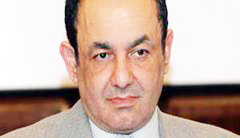
Causes of terrorism
Amr Al-Shobaki
Al-Masry Al-Youm newspaper
Branching out from last week’s attack on soldiers in Rafah, Al-Shobaki strives to dissect the sources behind the general concept of terrorism. Before the outbreak of last year’s Arab Spring revolutions, many argued that authoritarianism and lack of democracy were the main causes for terrorist assaults. From the other side, Mubarak and his fellow ousted leaders blamed the US and the Palestinian conflict for creating tensions and attacks. Al-Shobaki suggests that both former Arab dictatorships and the US have complemented each other in giving rise to terrorism in the region.
Analysis of the causes of terrorism reminds Al-Shobaki of how people are attempting to decipher the Rafah attacks. Different groups in Egypt are using the attacks as a way of placing blame on their opponents. Fingers are pointing to either Israeli or Hamas as the perpetuators of the incident. in Al-Shobaki’s view however, this analysis completely ignores any political or societal factors behind the attacks.
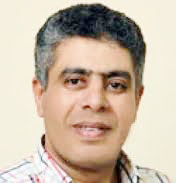
Morsy’s Decision and the Power Cuts
Emad Al-Din Hussein
Al-Shorouk Newspaper
Hussein suggests the latest presidential decisions to change leadership in the Presidential Guard, Military Intelligence, and his sacking of the North Sinai Governor has been a courageous response to the Sinai attacks. However, as much as these decisions are to Morsy’s credit, they are undermined by people’s suffering from the unprecedented power failures across Greater Cairo.
Hussein posits that the causes of power cuts are much deeper than the rising consumption rates suggested by government officials. He raises Egypt’s inability to pay for imported fuel in cash. This has resulted in a lack of credulity by foreign suppliers into the ability of the Egyptian government to pay. The greater problem becomes now the lack of transparency in the government’s official statements. This is compounded by an unsubstantiated insinuation that the entire issue is a conspiracy.
The size of the electricity crisis makes Hussein confident that power is now on top of Morsy’s big five for his first 100 days. This will require immediate solutions from the President, otherwise ordinary unpoliticised Egyptians will have good reason to mobilise against him.
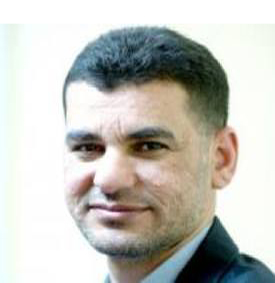
Street sellers
Ibrahim Mansour
Al-Tahrir newspaper
Mansour decries the rising numbers of street sellers in downtown Cairo, namely in Talaat Harb Street and its surrounds. His analysis suggests that street sellers who are now occupying sidewalks uninterrupted and unchallenged by any law-enforcing authorities are nothing but another episode in the series of chaos that has plagued the country since the 25 January revolution. Mansour believes that the Egyptians have been collectively punished by the pro-Mubarak security forces, led by his Minister of Interior Habib Al-Adli, since the deliberate release of thousands of criminals and outlaws during the early days of the revolution. This war on Egyptians was clearly proven in the mass killings of demonstrators in the Battle of the Camel.
After power was transferred to the elderly military generals, the chaos has continued, accompanied by a determination to serve the interests of the ousted regime and its deeply-rooted institutions. The generals have successfully created a sphere of political chaos with their collaboration with the Muslim Brotherhood in particular, resulting in putting an end to the revolution, as Mansour sees it. What is further inexplicable is Morsy’s preservation of countless figures of the ousted regime in his governmental and state institutions. This is the reason why chaos has even extended to the streets, which became in the territory of sellers and thugs.
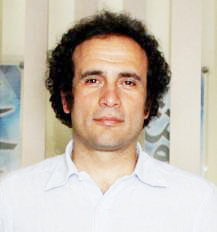
Where is the imbalance?
Amr Hamzawy
Al-Watan newspaper
Hamzawy is searching for the reasons why Egyptians lack the ability to distinguish between valid and illogical political choices. He argues that reason is lacking in situations where citizens are attracted to clouded and extreme religious speeches whereas others are duped by insincere patriotic statements. He further chides the Muslim Brotherhood and its Freedom and Justice Party for accusing and defaming any media professional who attacks President Morsy, his government and any of his decisions.
The primary reason for the apparent gap of wisdom in the political arena, in particular, lies in the strong fear from the rise tide of the Islamist forces, namely the Muslim Brotherhood who have been craving for power for more than 40 years, according to Hamzawy. He condemns those who feel paralysed in front of the Muslim Brotherhood thought, stating that dealing with any counter party cannot be manifested in declaring surrender. Hamzawy asserts that the imbalance in Egypt stems from stunted rational thinking and lack of wise political picks. Giving ears to an extreme religious speech is an additional factor to the general atmosphere of irrationality afflicting Egypt, even after the transfer of power to a so-called civilian authority.
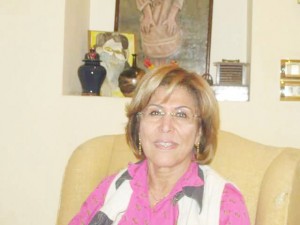
Legalising censorhsip
Farida Al-Shubashi
Al-Watan News
Al-Shubashi slams the restrictions on free speech imposed by the Muslim Brotherhood on opposing voices. She criticises the violent attack on journalist Khalid Salah by angry brotherhood mobs at the Media Production City. Al-Shubashi suggests that the Muslim Brotherhood have a systematic approach against whomever dares question why the President did not attend the funeral of those killed in the Sinai attacks, or even those who express their anger against the power and water chaos in hot summer Ramadan days. According to Al-Shubashi, this was illustrated by the brutal beating of demonstrators outside Al-Ittihadiya Palace by Muslim Brotherhood crowds.
Al-Shubashi recalls when president Sadat resorted to repressive laws prohibiting the assembly of five or more people in the early 1980’s, ignoring the existence even of single families comprising of more than five members. She warns the Muslim Brotherhood that the era of fear has gone since 25 January 2011, and that legalising repression and censorship is nothing but an outdated practice. The only solution to Egypt’s problems, including sectarian tensions, is not through silencing of voices, but through social justice, which is the core of Shari’a.






